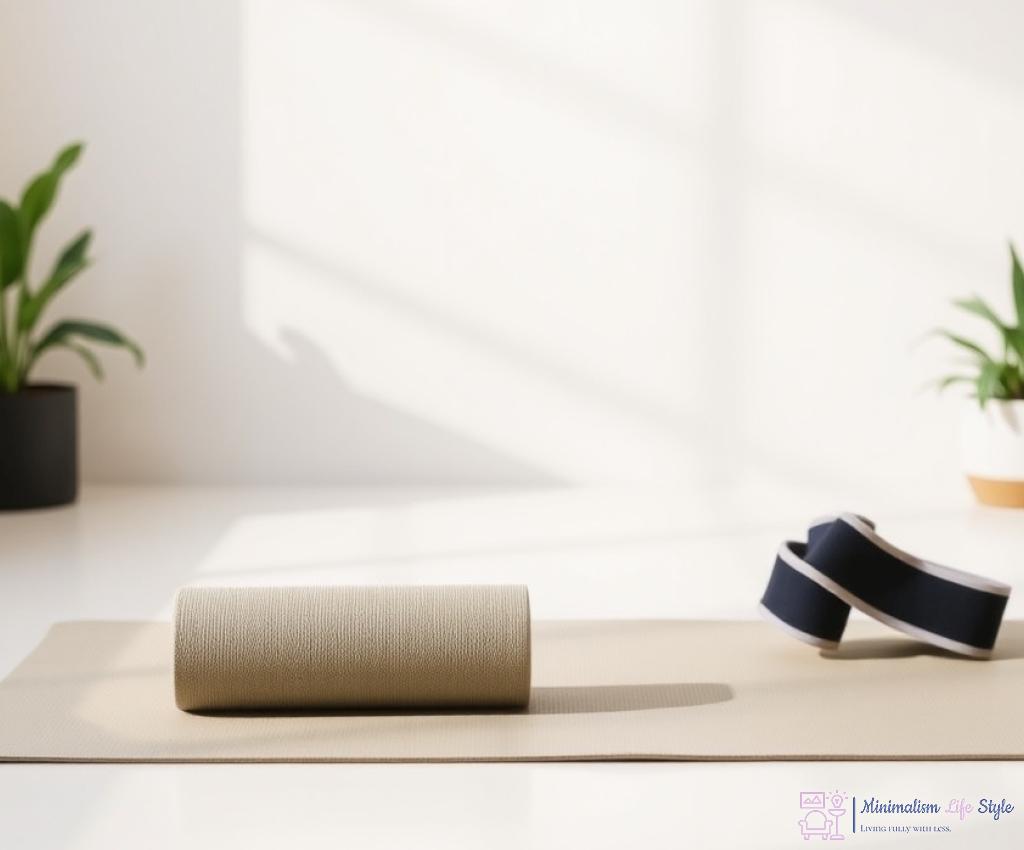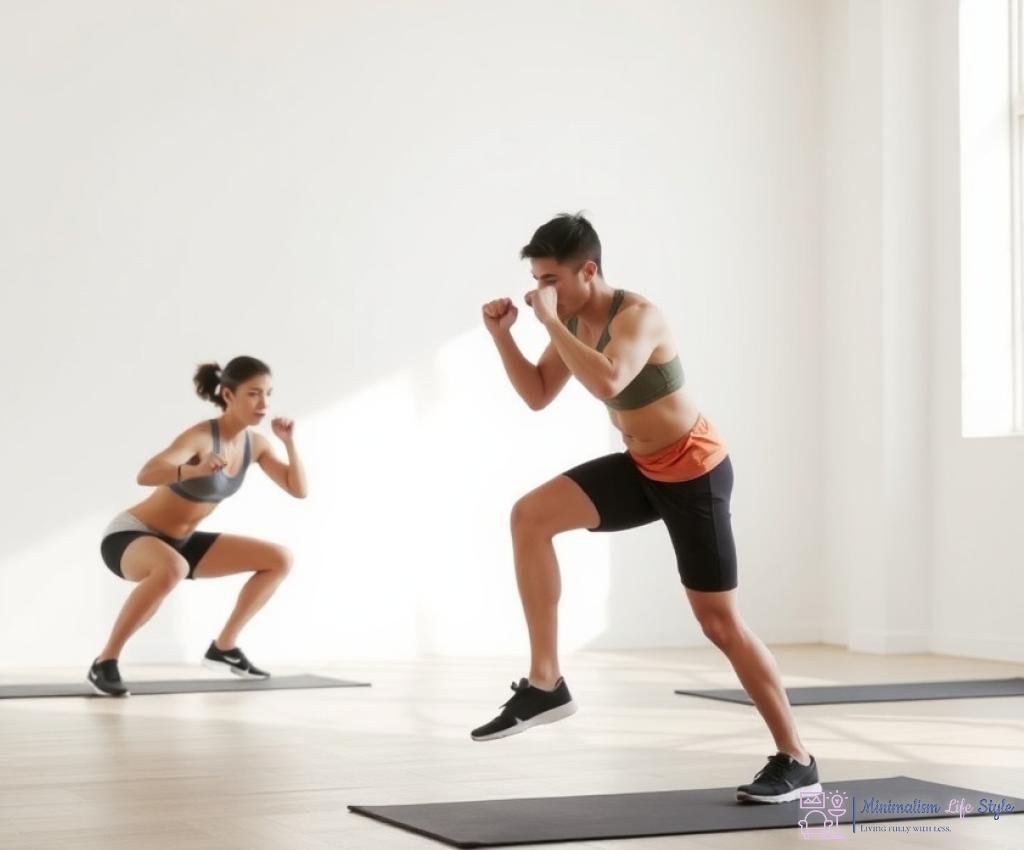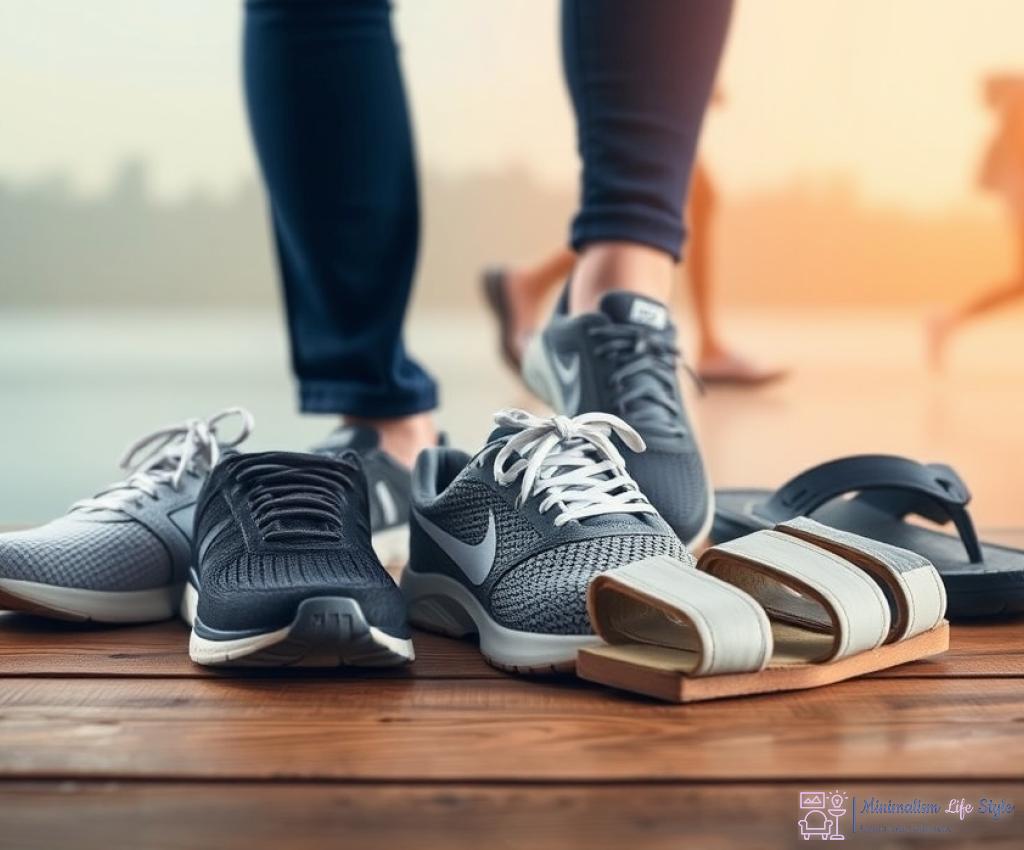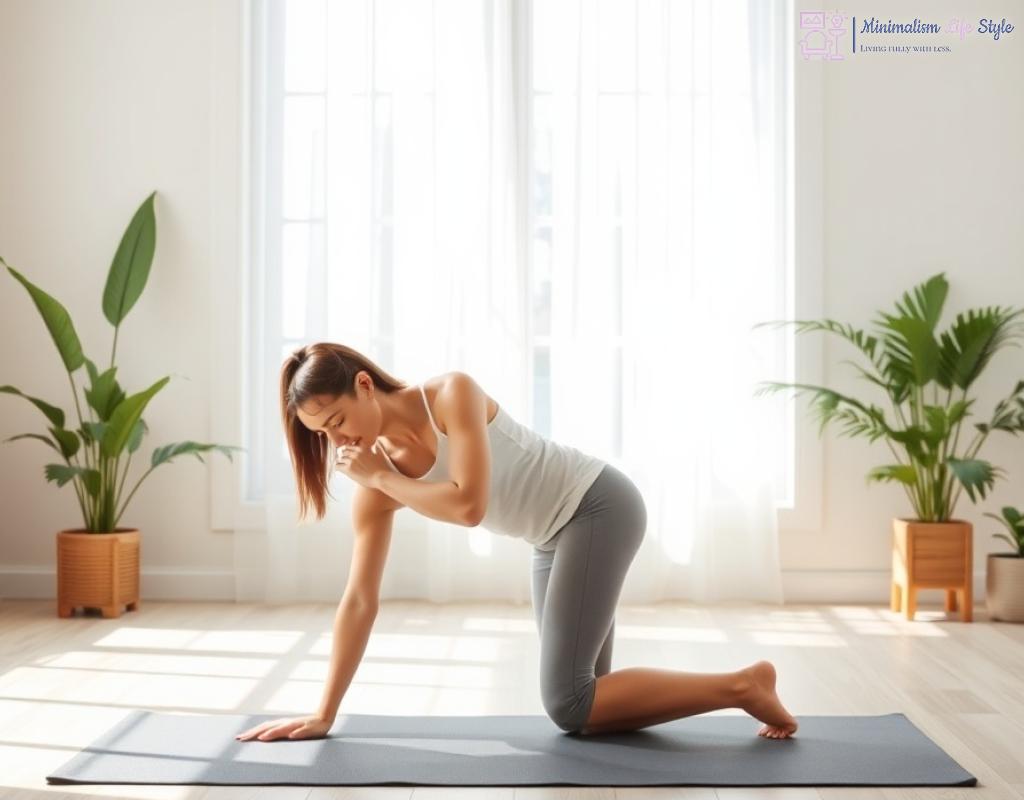Foundations of Minimalism: Simplifying Knee Care

The journey towards maintaining strong and stable knees begins with a minimalist approach to care. By focusing on the essentials, we can eliminate the noise and distractions that complicate our understanding of knee health. This article explores the fundamental practices that form the foundation of minimalist knee care, empowering you to simplify your approach while maximizing results.
When it comes to knee health, less can indeed be more. By narrowing down the multitude of options available, we can adopt a few effective practices that yield significant benefits. Below is a list of core practices that serve as a roadmap to achieving robust knee health:
- Focus on Functional Movements: Prioritize exercises that mimic everyday activities to strengthen the muscles surrounding the knee.
- Maintain a Healthy Weight: Reducing excess weight decreases the strain on your knees, promoting longevity and stability.
- Incorporate Regular Stretching: Flexibility is key. Simple stretches can enhance the range of motion and prevent injuries.
- Invest in Quality Footwear: Shoes that provide proper support can help align your knees and minimize discomfort.
- Listen to Your Body: Pay attention to any signs of discomfort or pain; early intervention is crucial.
Your knees are unique, and so should be your approach to their care. A minimalist strategy involves creating a personalized routine that emphasizes sustainability and consistency. Consider the following elements when crafting your plan:
| Element | Importance |
|---|---|
| Warm-Up | Preparing your muscles for activity reduces the risk of injury. |
| Strength Training | Building muscle support around the knee enhances stability. |
| Rest Days | Allowing time for recovery is essential for long-term knee health. |
| Hydration | Staying hydrated aids in joint lubrication and overall health. |
By embracing these foundational practices and tailoring them to your lifestyle, you can simplify your knee care efforts while ensuring that your knees remain strong and capable. Remember, the essence of minimalism lies in clarity and focus—take the first step towards healthier knees today!
Essential Exercises for Knee Stability

The pursuit of robust knee health is not merely about avoiding injury; it’s about fostering strength and stability through intentional movement. By integrating essential exercises into your routine, you can build a solid foundation that supports the intricate structures of the knee. These exercises, when performed with mindfulness and consistency, contribute significantly to overall knee wellness.
To cultivate knee stability, one must engage in targeted movements that directly strengthen the muscles surrounding the joint. Such exercises include squats and lunges, which not only build the quadriceps and hamstrings but also engage the glutes, providing a comprehensive workout for the lower body. Incorporating these movements into your routine encourages the muscle coordination essential for everyday activities, making the knees more resilient against stress. The beauty of these exercises lies in their adaptability; they can be modified to suit different fitness levels, ensuring that anyone can participate in their journey toward stronger knees.
While strength is vital, it must be complemented by flexibility to achieve optimal knee stability. Simple stretches such as hamstring and calf stretches can significantly enhance the range of motion, reducing the likelihood of injuries. This balance between strength and flexibility is crucial, as overly tight muscles can lead to imbalances that stress the knee joint. Furthermore, incorporating yoga or Pilates into your regimen can provide an excellent mix of stability and flexibility, promoting a holistic approach to knee care. By fostering this equilibrium, you not only protect your knees but also enhance your overall physical performance.
Incorporating these essential exercises into your lifestyle is not merely a recommendation; it’s a commitment to your knee health. Remember that consistency is key; the more you engage in these targeted movements, the more your knees will thank you by providing you with strength and stability for years to come. Embrace these practices as part of your minimalist approach to knee care, and witness the transformative effects on your overall well-being.
The Role of Footwear in Knee Health

When it comes to maintaining strong and stable knees, one often overlooked aspect is the choice of footwear. The shoes we wear play a significant role in how our body aligns during movement, which directly impacts knee health. Proper footwear not only enhances comfort but also supports the biomechanics of walking, running, and other physical activities. As you embark on your journey towards minimalist knee care, consider how the right shoes can serve as a foundation for your overall wellness.
Selecting appropriate shoes is not just about style; it’s about functionality and support. Here are some essential factors to consider when choosing footwear that promotes knee health:
- Arch Support: Shoes with proper arch support help distribute weight evenly across the foot, reducing strain on the knees.
- Cushioning: Adequate cushioning absorbs shock during activities, which can mitigate the impact on the knee joint.
- Fit: Ensuring a snug yet comfortable fit prevents unnecessary movement within the shoe, providing stability and reducing the risk of injury.
- Heel Height: Opt for shoes with a moderate heel height to maintain natural alignment and prevent undue pressure on the knees.
- Flexibility: A flexible shoe allows for natural foot movement, accommodating the diverse actions of the knee joint.
By focusing on these crucial elements, you can enhance your knee stability and overall physical performance, making each step you take a step towards better health.
As you adopt a minimalist approach to knee health, remember that your footwear is a vital component of your care routine. Regularly assess your shoes to ensure they align with your knee wellness goals. Here are some practical tips to integrate footwear considerations into your daily life:
- Periodically evaluate the condition of your shoes and replace them when they show signs of wear.
- Consider visiting a specialist for a gait analysis to identify specific footwear needs based on your walking or running style.
- Explore various brands and models that prioritize comfort and support, and be willing to invest in quality footwear that aligns with your knee care practices.
By making informed footwear choices, you can create a solid foundation for knee health, reinforcing the minimalist principles of simplicity and effectiveness. Take the time to evaluate your shoes, and you may find that the path to stronger, more stable knees is just a step away.
Nutrition for Stronger Knees: What to Eat
When it comes to achieving optimal knee health, the concept of minimalism extends beyond physical exercises and footwear; it also encompasses the food we consume. Nutrition plays a pivotal role in maintaining strong and stable knees, providing the essential nutrients that support joint function and overall wellbeing. Adopting a minimalist approach to your diet means focusing on whole, nutrient-dense foods that can directly benefit your knees while eliminating processed options that may hinder your progress. Let’s explore the key dietary components that can fortify your knee health.
To nurture your knees effectively, it’s important to understand the role of specific nutrients in joint health. Omega-3 fatty acids are vital for reducing inflammation in the body, which can alleviate pain and improve mobility. Found in fatty fish such as salmon and mackerel, as well as flaxseeds and walnuts, these healthy fats can help maintain knee function over time. Additionally, calcium and vitamin D are crucial for bone strength, ensuring that your joints have a solid foundation. Incorporating dairy products, leafy greens, and fortified foods will keep your bones robust, reducing the risk of injuries.
Moreover, antioxidants such as vitamins C and E can combat oxidative stress, which may contribute to joint degeneration. Citrus fruits, berries, and nuts are excellent sources of these protective compounds. By prioritizing these nutrient-rich foods, you empower your knees to withstand the daily stresses they encounter.
While specific nutrients are essential, hydration should not be overlooked in your knee health journey. Proper hydration supports joint lubrication, allowing for smoother movement and reducing friction during physical activities. Aim to drink sufficient water throughout the day, particularly before and after exercise. In addition, adopting a balanced dietary approach—one that comprises a variety of food groups—can enhance your nutritional intake. Rather than fixating on restrictive diets, focus on incorporating colorful fruits, vegetables, whole grains, and lean proteins into your meals. This approach not only simplifies your eating habits but also ensures that your knees receive the diverse nutrients they need to thrive.
In summary, embracing a minimalist approach to nutrition involves a commitment to selecting whole, nutrient-dense foods while maintaining adequate hydration. By doing so, you can create a supportive environment for your knees, helping them remain strong and stable as you navigate life’s demands. Remember, every bite counts on your journey toward optimal knee health.
Mindful Movement: Techniques to Protect Your Knees
As we journey through life, our knees bear the brunt of countless movements, from simple daily tasks to intense physical activities. Adopting a minimalist approach to knee health means not only simplifying your care routine but also being intentional about how you move. Mindful movement is key; it encourages awareness of your body and its mechanics, significantly reducing the risk of injury. This section delves into effective techniques that promote knee protection while fostering strength and stability.
Mindful movement isn’t just about exercising; it’s about understanding how each action impacts your knees. By cultivating a mindset of awareness, you can make informed choices that enhance your knee health. Here are some techniques to incorporate into your daily routine:
- Engage Your Core: A strong core supports your overall posture and stability, reducing undue stress on your knees.
- Prioritize Alignment: Maintaining proper alignment during activities ensures that the forces exerted on your knees are distributed evenly.
- Control Your Pace: Slow, deliberate movements allow for better technique, minimizing the risk of sudden strains or injuries.
- Warm-Up Wisely: Always begin with a proper warm-up to prepare your muscles and joints for movement, enhancing flexibility and reducing injury risk.
One of the most powerful tools in mindful movement is the ability to listen to your body. Recognizing discomfort or fatigue can prevent more significant issues down the road. Here are a few strategies:
- Practice Self-Assessment: Before and after physical activity, take a moment to assess how your knees feel. A quick check-in can guide your decisions.
- Take Breaks: If you feel any strain, don’t push through it. Taking regular breaks can help prevent overexertion.
- Modify Activities: Adjust your movements based on your body’s feedback. If a particular exercise feels uncomfortable, seek alternatives that offer similar benefits without compromising your safety.
Incorporating mindfulness into your movement practice can transform your approach to knee health. Consider activities like yoga or tai chi, which emphasize fluid motion and body awareness. These practices not only enhance strength and flexibility but also cultivate a deeper connection to your body’s signals.
By embracing these techniques, you can create a sustainable routine that prioritizes knee protection and overall well-being. Remember, mindful movement is a journey, not a destination. As you continue to refine your approach, your knees will thank you with their resilience and strength.




